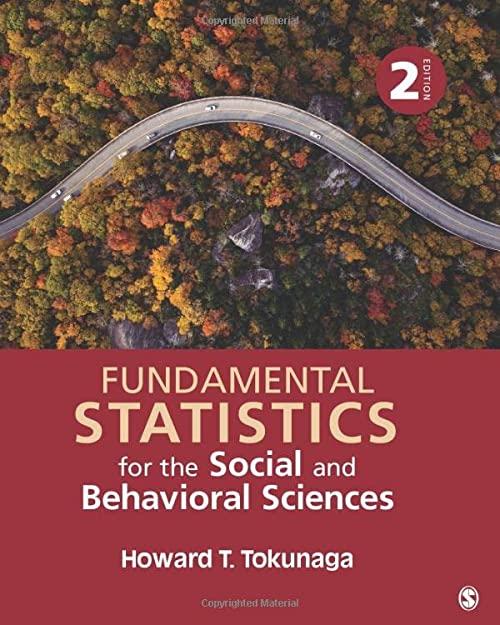A researcher wishes to test a drug that claims to improve memory. The researcher sets up an
Question:
A researcher wishes to test a drug that claims to improve memory. The researcher sets up an experiment where a control group receives a placebo (i.e., a sugar pill) and an experimental group receives the memory pill. The following data are the number of sentences each participant correctly recalls after listening to a two-paragraph story. Determine if there is a significant difference between the two groups.
Placebo: \(10,3,4,6,9,1,7\)
Experimental: \(12,5,6,10,4,7,8\)
a. For each group, calculate the sample size \(\left(N_{i}\right)\), mean \(\left(\bar{X}_{i}\right)\), and standard deviation \(\left(s_{i}\right)\).
b. State the null and alternative hypothesis \(\left(\mathrm{H}_{0}\right.\) and \(\left.\mathrm{H}_{1}\right)\).
c. Make a decision about the null hypothesis.
(1) Calculate the degrees of freedom \((d f)\).
(2) Set alpha ( \(\alpha\) ), identify the critical values, and state a decision rule.
(3) Calculate a statistic: the \(t\)-test for independent means.
(4) Make a decision whether to reject the null hypothesis.
(5) Determine the level of significance.
d. Draw a conclusion from the analysis.
Step by Step Answer:

Fundamental Statistics For The Social And Behavioral Sciences
ISBN: 9781506377476
2nd Edition
Authors: Howard T Tokunaga




